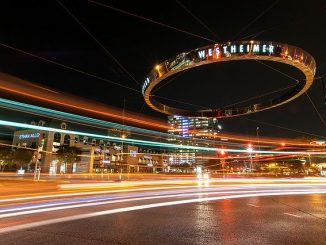
I’m dispatching with the usual links format for something a little more thematic as we recover from the Arctic blast that took out our potable water, our power grid, our Texas pride (at least a little bit), and more over the last week.
Why did the vaunted Texas power grid fail to keep Texans powered?
We’re going to be hearing a LOT more about this in the coming weeks, because we don’t have all the answers as to what went wrong with so many power suppliers.
The Streetwise Professor blog (written by University of Houston professor Craig Pirrong) provided the best early assessment of the meltdown, “Who is to blame for SWP’s (and Texas’s) Forced Outage.” Professor Pirrong has since followed up with two additional posts on electricity markets and pricing (some of it is a little technical, but worth the time to read). He is a real expert in this area, and if our governor has any sense, he’ll appoint Professor Pirrong to any commission formed to look into ERCOT reforms.
Bill King wrote an excellent, more general piece on what went wrong. Many of the conclusions are similar. King would also be an strong contributor to any ERCOT reform commission.
The key takeaway from both pieces is that it’s not so simple as blaming renewable (or hydrocarbon) generation sources, but rather somewhat more complicated. The Texas commitment to renewables certainly has added some twists to power generation and stability that the state (through PUC, ERCOT, or other means) has not addressed, and there were already questions of cold weather readiness and cost tradeoffs that will need to be addressed going forward. Be very wary of journalists (who don’t disclose their spouse’s ties to the renewable energy industry) who claim this is a simple problem to fix (in less than 800 words – oh, to be a journalist with the vision and knowledge of a prophet!). Ignore altogether journalists who clearly don’t have a clue when it comes to economics, energy, electricity markets, or any other complicated subject matter, but whose only contributions are to emote emote emote over the problem. For that matter, politicians who take out their frustrations on car washes or decide to vacation in Mexico and then lie about it aren’t all that helpful either when it comes to understanding what happened and how to fix it, nor are ambulance chasers who apparently aren’t even aware that Entergy is on the MISO power grid, not ERCOT’s.
What about Centerpoint and the promised “rolling blackouts” that didn’t really roll?
Area power distributor Centerpoint Energy has seemed happy enough to let ERCOT and power generators take all the heat for the near-blackout over much of Texas across several days.
At some point, however, Centerpoint needs to answer some questions about its role in the prolonged blackout across the Houston area. Many homes went anywhere from 24-48 hours continuously without power, leading to a number of deaths, much property damage (in the form of broken pipes), and a great deal of anxiety – only for most Houstonians to be without potable water once power was restored.
Centerpoint needs to explain why the rolling blackouts that officials across all levels of the Texas electricity system were promising did not happen. Was it because the supply was simply too low to spread around through controlled blackouts? Was it because Centerpoint already had major reliability issues that this event merely underscored (recall that HEB installed generators at their local grocery stores several years ago because they decided Centerpoint could not reliably provide power to keep groceries refrigerated and safe)? Incompetence? Or something else?
Moreover, we also need to know why the drinking water system was not supplied priority power, which resulted in a citywide boil order as a result of failing pumps and lost water pressure.
And what does this all mean for Houston’s (and Texas’s) future?
Our friend Tory Gattis frequently extols Houston’s affordability and unique solutions to various urban problems as drivers of area growth over many years.
That said, we know that population growth in the city proper has been flat in recent years, and actually declined last year, and the local newspaper’s rather progressive opinion page op-ed editor (and community organizer) Raj Mankad wonders if recent extreme events aren’t beginning to exact an unmeasured cost on area residents, what he calls a “trauma tax”:
In a city that boasts of its low cost of living, it’s time we acknowledge the true toll of Houston’s incessant stream of unfortunate and deadly events.
Over the past decade, Houston has been through three years of severe drought. Followed by five years with at least one flood worthy of the increasingly outdated “100-year” or “500 year” distinction. , And then five major chemical explosions in 2019. Then the COVID pandemic, which at times rendered our region among the worst hot spots in the world.
[snip]
Sometimes it feels as if Texans, and Houstonians in particular, are subjects in some intelligently designed experiment, chosen for our ideal diverse population, extreme weather and weak regulations. Developers profited off lax rules in their paving over floodplains and prairies. Petrochemical companies benefit from loose oversight of their impact on fenceline communities. Electricity generators saved a few bucks because no one required them to weatherize. Yes, companies profit off this laboratory of disaster, but then, so do us lab rats. The jobs, the art, the food, the music, the square-footage, extra bedrooms and sprawling yards.
We owe it all, either directly or within a degree of separation, to industry.
But, to paraphrase a popular counter-slogan of Houston: Is it worth it?
[snip]
When I moved to Houston in the summer of 2001 to attend graduate school at the University of Houston, piles of sopping debris from mucked out buildings still lined the streets after Tropical Storm Allison’s then-record-breaking floods. I was eager to move here, though. The cost of living seemed lower than most any other big city. I found an apartment steps away from the Menil Collection that my meager teaching stipend covered.
Having grown up on the Gulf Coast, in Alabama, I accepted this risk of a hurricanes. In 2008, my new family stuck it out through a couple of weeks without power after Hurricane Ike and bonded with my neighbors over impromptu feasts of thawed-out freezer food. The layering, folding, compounding of disasters over the past decade wasn’t part of my calculation.
I’ve begun to ask myself, in a manner that’s no longer merely rhetorical: Is it time to give up on Houston and leave?
Although our politics are vastly different – in many ways opposed – Mankad raises some really good questions about the future of Houston (with answers that may already be reflected in the most recent year’s population downturn).
Looking beyond the costs imposed by recent extreme events that are rightly cited by Mankad – what about the costs imposed (directly or indirectly) by each of these worsening problems in the city?
- A violent crime pandemic, driven by well intended criminal justice reforms gone badly awry in Harris County
- Street takeovers that regularly mock HPD’s inability to maintain basic law and order on the streets
- A dysfunctional education system (HISD) that regularly fails some of the most vulnerable children in our area (but provides well for some grifters)
- A municipal pension system that is barely treading water after a ballyhooed “reform” and that will almost certainly require further shoring up from taxpayers
- A neglected wastewater system that is going to cost area water users a great deal more in the coming years
The water system is scarcely better. Why didn’t City of Houston Public Works backup generators provide enough redundancy to keep the system working? And why is the stuff that came out of many faucets afterwards SO brackish? Houston water has become so sketchy that I put in a whole-home filtration system last summer – another potential cost of living in Houston that should be factored in, along with the potential cost of investing in a portable or even whole-home generator because the power system is unreliable.
It’s not clear that it’s time to pack up and leave – and that is not a realistic option for many – but all of this starts to add up. And increasingly, the math doesn’t point to Houston as a long-term place to be (or a place to relocate a major business).



